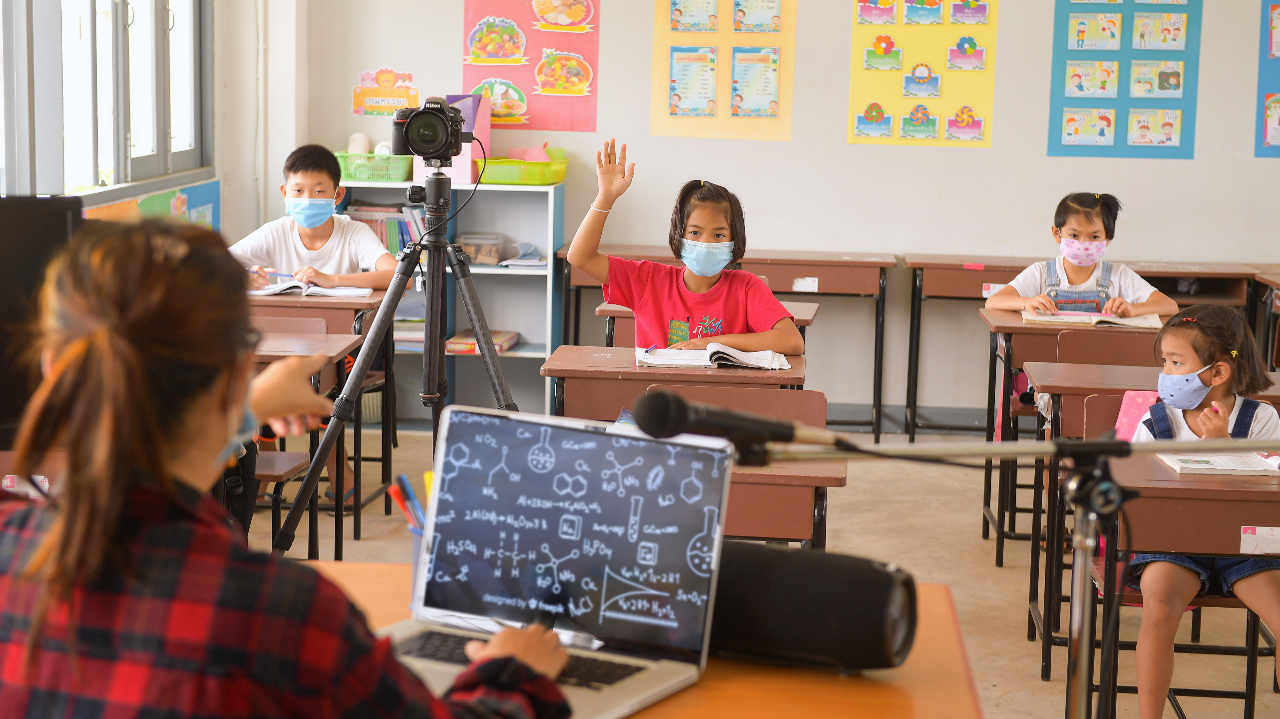Feb. 22, 2021
Contact: Brian Consiglio, 573-882-9144, consigliob@missouri.edu
When teachers encounter disruptive or noncompliant students in the classroom, they typically respond by focusing on the negative behavior. However, new research from the University of Missouri found that offering students more positive encouragement not only reduces disruptive classroom behavior, but can improve students’ academic and social outcomes.
“As educators, we often focus on communicating what we don’t want our students to be doing in class, but we have found that just doesn’t work,” said Keith Herman, a professor in the University of Missouri College of Education. “Instead, we need to be setting clear expectations of what behaviors we do want to be seeing.”
To help teachers provide a nurturing and structured environment for students in the classroom, Herman implemented CHAMPS, a classroom behavior management training intervention, into a St. Louis County school district’s middle school classroom over the course of five years. The intervention resulted in decreased disruptive classroom behavior and student concentration problems. The intervention also improved both completed class work and standardized test scores, as well as increased the amount of time students remained on task with classroom assignments.

“The intervention is based off principles and practices research has shown to be helpful in creating successful classroom management, such as communicating clear expectations to students, giving more positive encouragement compared to negative reprimands and moving around the classroom to monitor student behavior,” Herman said.
One of the coaches that helped implement the intervention was Julia Burke, former assistant superintendent for student services in the Hazelwood School District. She conducted classroom observations to help coach and mentor the teachers receiving the training. She observed that the intervention helped increase student engagement and boosted the teachers’ confidence in their ability to manage disruptive behaviors.
“I have always been committed to removing barriers that prevent student success in schools,” Burke said. “We can positively impact our children and prepare them for the future if we have strong teachers that are equipped not only with knowledge, but with a toolbox of skills and strategies to provide the best instruction possible in a respectful, engaged classroom climate.”
As a former special education instructor, Burke emphasized the need to connect with all types of students, regardless of educational background.
“We have a wide variety of student demographics, and we have to meet the needs of all our students,” Burke said. “We can’t just meet the needs of the kids who come in prepared and ready to learn. We also need to connect with the students who may not have had the same opportunities growing up or who might be dealing with other struggles outside the classroom.”
The classroom behavior management intervention ties into Herman’s overall research objective, which is to improve the mental health of children who may be suffering with a variety of issues like stress, anxiety and depression.
“I want to help kids develop a positive view of themselves and see their own value as contributing members of society,” Herman said. “Too often we just think of mental health as sending a kid who may have concerns to a counselor. But even before we get to that point — how can we set these kids up for success so that fewer of them develop these problems that require further intervention in the first place.”
“Can effective classroom behavior management increase student achievement in middle school? Findings from a group randomized trial” was recently published in Journal of Educational Psychology. Funding for the study was provided by US Department of Education.




